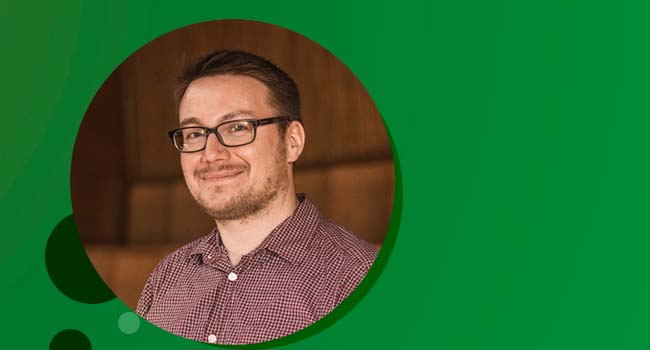DEGREES, FORMER POSITIONS
Dr. rer. nat. (PhD) from Leibniz Universität Hannover in 2017
RESEARCH AREA AND FOCUS
I work in the area of mobile interaction and am particularly interested in how to integrate computing into everyday activities. A lot of my work has centered on casual and subtle interactions with mobile devices. The goal there is to design interactive systems to be less intrusive, less taxing, less disruptive, and more socially acceptable.
I have applied this approach in several facets of mobile interaction, such as text entry, haptic feedback, around-device interaction, and touch input. Correspondingly, most of my work is in technical human-computer interaction research and requires creating and evaluating artifacts of novel interactive systems. In previous projects that has meant creating custom circuits for a new wearable, using machine learning to recognize users from their actions, or analyzing millions of tweets to build semantic models for text entry of emoji.
PROJECTS
I'm currently most interested in mobile mixed reality interfaces and how this can integrate computing into a wider range of tasks and activities. While we already all have a computer in our pockets, mobile devices so far have remained rather detached from our actions in the world. One really basic example of this is calculation. The calculators on our phones can basically do all the math we need in daily life (such as when shopping or woodworking), but they leave a lot of the work involved to us users.
It's my job to input all the numbers, even though they might be right there in front of me (e.g., on price tags, measurement tapes, or scales). Similarly, my calculator shows me just a number as a result and I have to do the mental work of interpreting it back in the context of calculation. For example, there's a difference between a 12 on the screen and 12 square meters shown in front of me.
So I've been exploring what calculators could look like if they are not just a few buttons and a results field, but instead exists right there in the world in front of me. Yet, the calculator is just one instance of a larger problem space and I believe there is strong potential for computing in many other kinds of everyday situations. For example, I'm quite curious how meetings, mobility, communication, and collaboration could be improved.

